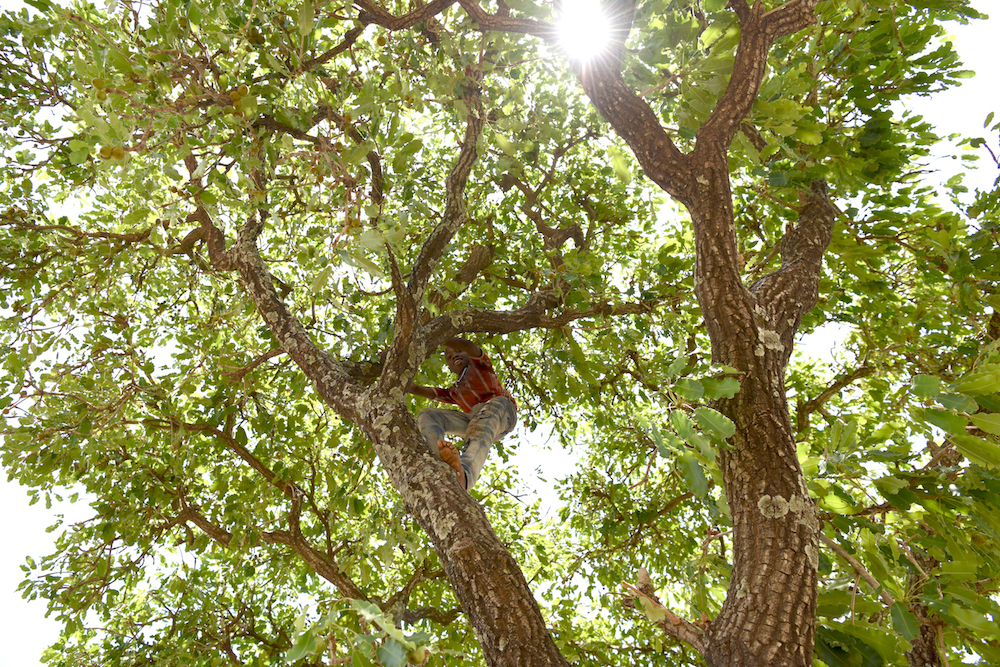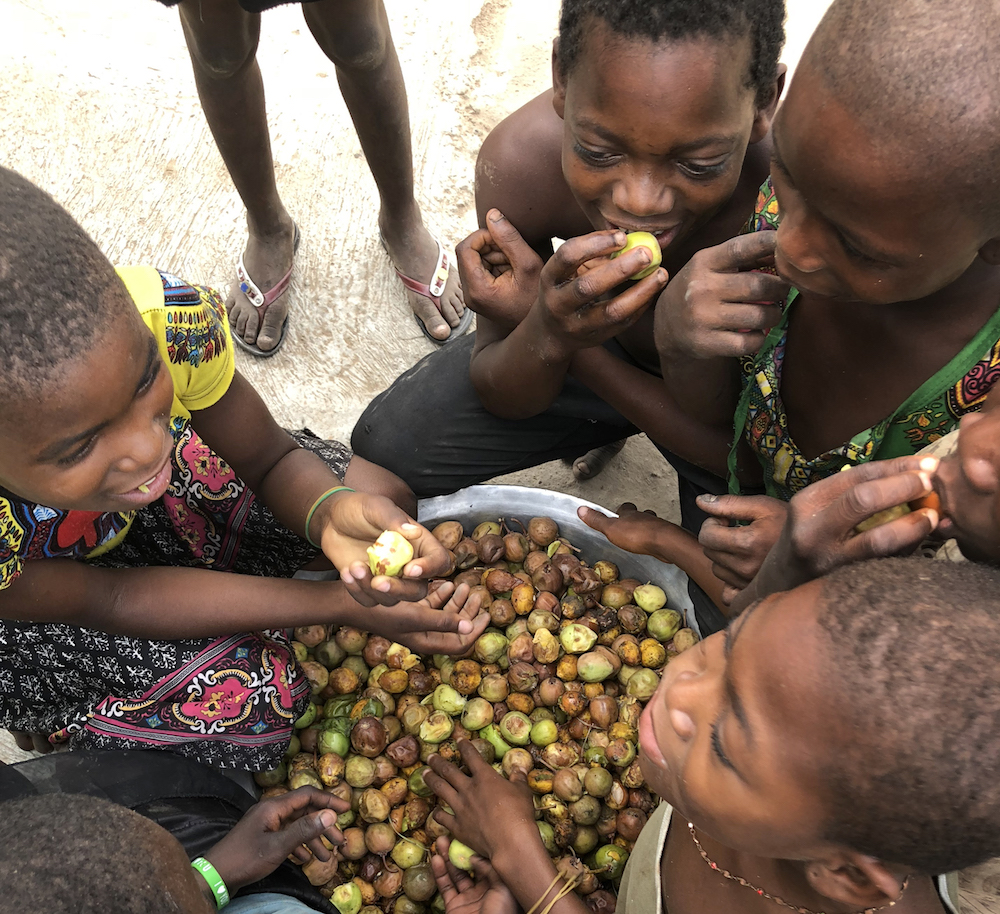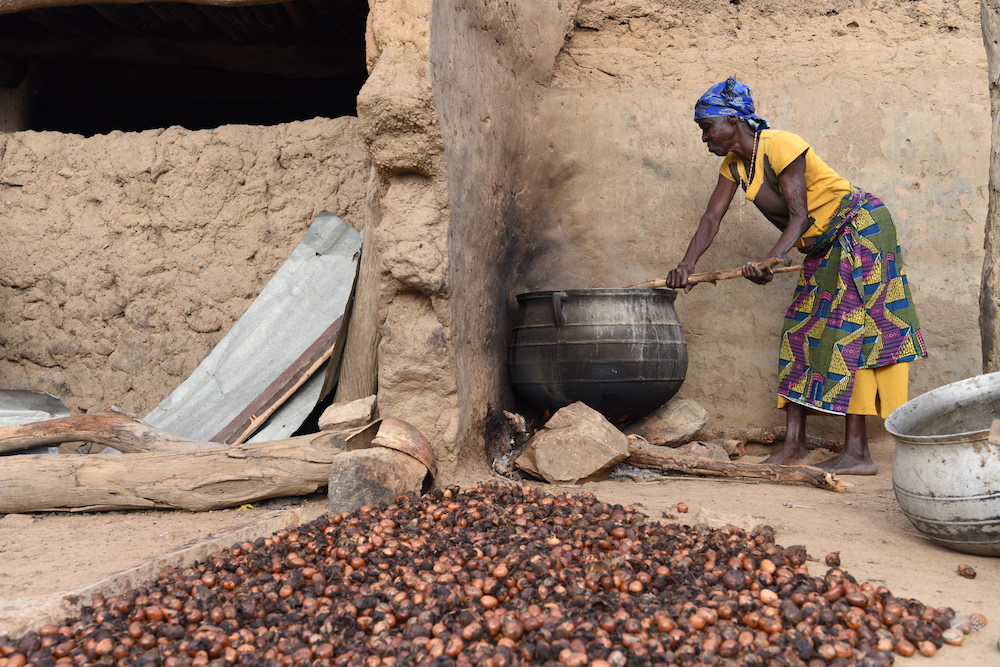So many women in Ghana look decades younger than they really are, and some of the credit goes to shea butter. Processing the kernels found inside the edible fruit of shea trees is a go-to money maker in Ghana's bare-bones Northern Region, where other paying work is hard to find. Shea nuts keep their bounty on tight lock-down, however, and extracting the good stuff is no mean feat. Here's a snapshot of this tough work:

Shea fruits grow on trees and fall to the ground when they're ripe, although they often get a nudge when boys climb the trees and shake the limbs.

The fruit inside is edible, and it's a common snack and breakfast food.

The large shea nuts are boiled clean, then left out to dry in the sun for days.
Once dry, the shea kernels are broken into small pieces and roasted. They then go to a mill to be ground into a paste. The paste is then boiled, bringing the fat to the top where it can be skimmed, leaving any residue behind in the pot. Once it cools, the shea butter is ready to be used as a lotion or cooking fat, or as an ingredient in soaps and cosmetics.